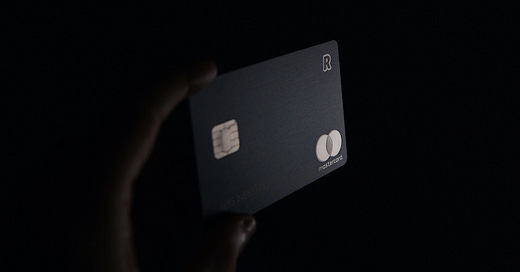If you missed last week’s newsletter, catch up here.
TOGETHER WITH FINCRA
Fincra provides reliable payments solutions for fintechs, online platforms and global businesses. Their solutions make it super easy for businesses to send and receive local and international payments in EUR, GBP and NGN from/to customers, suppliers and partners seamlessly without the headaches associated with traditional payment methods. You can gain access to Fincra’s platform through a merchant portal or simply integrate their payment API keys into your platform.
Sign up for a quick demo in less than 5 mins here
You get credit, I get credit, everybody gets credit…
In the first-ever edition of the Notadeepdive newsletter, I argued that few things are as difficult as getting a loan in Nigeria.
If you got a loan through a Nigerian bank in 2020, you’re automatically on my eat the rich list. Because, believe it or not, there are only a few people like you in Nigeria — 2% of Nigerians got loans through banks in 2020.
Digital lenders, which sprung up to fill the need for instant, personal loans, report big numbers, are still not perfect. High-interest rates that reflect the risk premium of lending in Nigeria and questionable loan recovery methods are some of the questions digital lenders need to answer. Yet, credit and BNPL, which for the better part of last year has been a European conversation, have started to feature more in the Nigerian startup conversation. Last week, Klump, a startup that provides BNPL offerings, raised $780k. Carbon Zero, which offers interest-free BNPL services, is pushing its services a lot more.
For businesses like Carbon, offering credit is a natural progression. They hold customer deposits, offer loans and have sufficient experience underwriting those loans. And as they continue to collect customer data, it only makes sense to expand their credit offering by letting customers that can afford it finance asset acquisition.
For B2B companies and e-commerce giants like Jumia, it makes sense because in a way they're sort of a bank + marketplace + delivery service all in one. Lending helps to drive up their GMV + revenue while keeping traders and (theoretically) helping these folks expand their businesses. With the right loan plans, B2B companies can use credit to retain traders in a market where everybody else and their grandmas and loanshark gives credit.
For ride-hailing companies, it's a retention strategy that also happens to bring a lot of money too. If a driver is tied to Uber for 2-3 years and guarantees a consistent weekly cashflow while also using the app for orders above the threshold, it's a win-win for Uber. Plus, the value of the cars will go down over time, but Uber would have already recouped their initial cost while amortizing the same asset over time.
In almost every sector you look at, it’s easy to get a sense that credit will become a necessary add-on. But there are already many within the industry who are offering warning signs for startups throwing their hats into the credit/BNPL ring. As competition heats up in what is already a small addressable market, will startups feel the pressure to relax risk management as the BNPL push expands? And ultimately, are startups setting themselves up for huge defaults that may prove deadly?
And while we’re still on the subject of credit and defaults…
Nigeria’s expensive new debt
A child born yesterday in Nigeria is already familiar with the country’s dire revenue situation. In the last six years, the response of the FG has been to ramp up external borrowing and cash printing from the CBN a.k.a Ways and Means. Yet, this week, Nigeria deepened its debt obligations by raising a $1.250 billion bond priced at 8.75% per annum. If your math is a little rusty, that’s an easy $105 million in annual interest payments; and in the next eight years, Nigeria will have to cough up $8.4bn in debt repayments.
Borrowing $1.250bn at such a steep rate for a small sum suggests that Nigeria’s revenue problem is worsening. With global yields rising globally, it’s worrying that Nigeria did not wait until the second half of the year seeing as the market condition hardly supports it. Yet, Nigeria is faced with funding a deficit budget and as global oil prices continue to rise, Nigeria will continue to face a fiscal squeeze. It makes you wonder, how long can Nigeria hope to borrow its way out of its revenue problem?
That’s it for today. See you next week!







We really need to improve our revenue generation in this country, and I don't mean just increasing taxation. So much natural resource. Nigeria is truly crying for people who can help harness it. Even if we had 10 of the ilk of Dangote, the country would be better.
Interesting and informative writeup as always. I would recommend that abbreviations such as B2B, GMV be also written in full. This gives the reader fluidity without having to jump between browsers looking for meanings to them